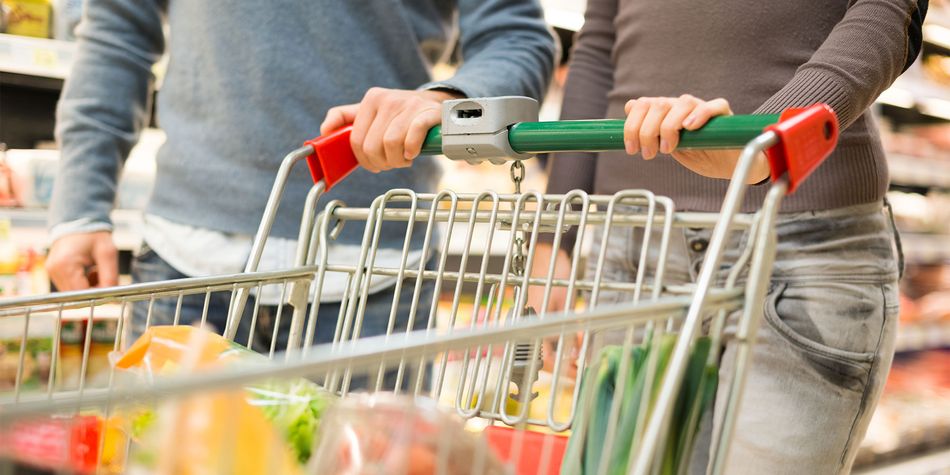Christmas chocolate prices soar as grocery inflation back on the rise

Grocery inflation has risen for the first time in 20 months, according to Which?'s supermarket price tracker.
Our tracker shows overall grocery inflation rose by 3.6% in the year to November 2024. It's the first increase since March 2023, when grocery inflation hit a peak of 17.2% during the cost of living crisis.
Some items have seen much steeper rises, including both everyday and festive products. Here we pick out some of the groceries with the biggest price increases, and offer expert tips on how to save money at the supermarket this Christmas.
Christmas chocolate prices badly hit
It's bad news for those with a sweet tooth, as chocolate has seen particularly high inflation – 12.4% in the year to November 2024, which was the highest across all the food and drink categories we looked at. There's been a significant rise in global cocoa prices after poor harvests because of weather conditions in West Africa.
Among the popular Christmas items that saw significant price hikes this year were:
- Cadbury Milk Tray Chocolate Box (360g) from £2.63 to £5.78 at Ocado – up 120%
- Cadbury Chocolate Xmas Santa Selection Box Medium (125g) from £1.50 to £2.75 at Morrisons – up 83%
- Fox's Classic Biscuit Selection (550g) from £3.27 to £4.97 at Ocado – up 52%
Prices for festive products are averages for the one-month period to the end of November in 2024 compared to the same period a year earlier.
Which other groceries have risen in price the most?
We found the prices of some everyday items have increased dramatically year-on-year. Some of the worst examples include:
- Acti Leaf Unsweetened UHT Soya Drink (1 litre) from 50p to 85p at Aldi – up 70%
- Essential Pure Orange Juice (1 litre) from £1.20 to £1.80 at Waitrose – up 50%
Prices for these everyday items are based on averages for the three-month period to the end of November in 2024, compared with the same period a year earlier.
- Find out more: what's happening to prices at the supermarket?
What's been happening with grocery inflation?
Prior to its current increase to 3.6% overall, grocery price inflation had been steadily falling since March 2023. It was just 2.7% in the year to August 2024, when we last ran the tracker. Of course, falling inflation meant prices were still rising, just at a slower rate.
After the Budget in October, supermarkets and the British Retail Consortium warned that higher living wages and National Insurance contributions could lead to higher prices for shoppers.
But the latest results from our tracker show food inflation has already been rising. We'll continue to monitor grocery inflation to see if this continues after National Insurance contributions rise in April 2025.
How to get the cheapest groceries
With prices significantly higher than before the cost of living crisis and Christmas fast approaching, many households will likely still struggle to afford the weekly shop and will be concerned that prices have risen again.
To help save money, make sure you compare the price per unit (either 100g or 100ml for example) across different pack sizes, retailers and brands to ensure you're getting the best value for money.
You can also switch supermarkets to make significant savings – see our cheapest supermarket results for more information on how much you could save.
- Find out more: how to spend less at the supermarket
Which? calls on supermarkets to do more
Which? has found millions of people are excluded from accessing lower loyalty prices at major supermarkets on the basis of their age, lack of address or digital access.
We believe the lower prices offered by loyalty schemes should be available to those who are currently ineligible to sign up through no fault of their own, and are calling on retailers to find a solution.
Sue Davies, Which? head of food policy, said: 'With Christmas fast approaching, many households will understandably be concerned to hear that food inflation has risen for the first time in more than 18 months.
'Supermarkets still have an important role to play in supporting consumers to make affordable choices, including by making sure no consumers are unfairly excluded from loyalty schemes.'
What do the supermarkets say?
We asked the supermarkets about the prices of the individual products mentioned above.
Aldi, Lidl, Morrisons and Ocado did not comment.
Waitrose said: 'All retailers have seen external factors impacting the price of orange juice, but we're working with our suppliers to keep prices low.'
Waitrose also said it had a number of multibuy offers where customers could make savings.
About Which?'s food and drink inflation tracker
Which?’s tracker looks at 20 popular categories of food and drink at eight supermarkets — Aldi, Asda, Lidl, Morrisons, Ocado, Sainsbury’s, Tesco and Waitrose.
It compares average prices across the same three month and one-month periods year-on-year, including discounts but not multibuys or loyalty card offers.
Overall inflation figures are weighted based on supermarket market share and the sales volume of each product category.
Prices are provided by an independent data provider.
- Find out more: Which? food price inflation tracker




